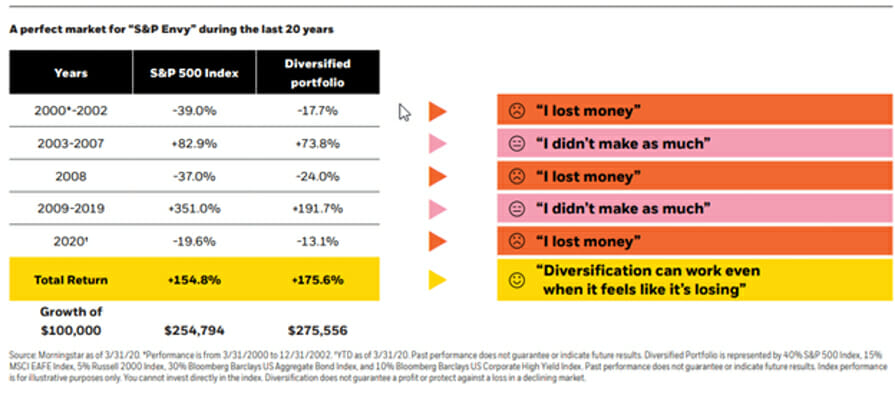
As I write this article it was almost exactly one week ago that I drove through the night to pick up my daughter from Furman University in Greenville, SC. The evening before I left, my daughter and I chatted about her driving home from school since there was no power, and very little access to food or fuel.
Even after that conversation I wasn’t quite sure of the extent of the damage from Hurricane Helene in the western Carolinas. My daughter mentioned that she was going to make her way to a friend's house or a hotel in the Greenville area. However, the power was out at both places. There was literally nowhere to go to get food, water, or electricity.
After that conversation, I realized my daughter wanted out of there and she might be crazy enough, like her dad, to start driving just to make something happen. I really wanted to get there before she decided to leave for home that Saturday morning. That is what really motivated me to get up at 2 AM and start my four-hour trip from Maryville, TN, to Greenville, SC. Interstate 40 from Tennessee to North Carolina had washed away in the flooding, so I took a famous path of mountainous roads called the Tail of the Dragon, aka Highway 129. I’m sure that stretch of highway is exciting under different circumstances and with a different vehicle than my Toyota 4-Runner!
I still didn’t know the full extent of the damage, but I knew there was a possibility of flooded roads, downed trees, closed roads, areas of no cell service and limited gas at gas stations. In fact, all of these conditions existed and more! The damage, especially to the Ashville, NC, area was far worse than I thought. Even now, the death toll is still rising, and there are ongoing search and rescue operations for missing individuals that live in remote and mountainous areas.
After witnessing a small portion of the damage from Hurricane Helene, I’ve apologized to my Florida and other coastal living friends for my lack of empathy and understanding of the true devastation Hurricanes can inflict on communities and human lives. I’ve often read that knowing something to be true and having the experiential knowledge of that something is vastly different. I came to experience that principle firsthand after the short rescue operation of my daughter from college. Clearly, what I witnessed was just a fraction of what was happening to those who live in the areas affected by Hurricane Helene.
Get a Plan and Change Your Mindset
What are some steps we can take to prepare for a catastrophic event of any kind? Catastrophic events happen in many different forms; disability, untimely death, loss of employment (see the latest news for Spirit Airlines). However, just like flight planning, having a plan in place for the unexpected can bring security, confidence, and reduced stress, but we must do the work.
The most important part of any plan is to have the right mindset. I’ve certainly been guilty of a mindset of, “...that (hurricane, earthquake, tornado, etc.) only happens to other people and it won’t happen to me.”
Furthermore, put aside the idea that you’ll be labeled a crazy prepper if you have a generator and fuel source in your basement. Get one asap!
As we have already discussed in this article, we don’t know what the next event will look like. We do know it will look very different from what we experienced in the past – remember 2020? Also, like you, I’m a bit skeptical of the electromagnetic pulse (EMP) grenade that your captain told you was going to happen soon, but you’ll be prepared for it anyway!
Create a “Go Bag”
One of our Leading Edge team members, Amelie, shared with us a time when they lived in an area in California prone to wildfires. She mentioned that they prepared a couple of duffel bags they could grab quickly and run out the door to escape the fires. The bags might contain the items below, but you may decide to include other items as necessary for your area. Click here to get more ideas from the California Department of Forestry and Fire Protection.
• Cash! – more on that below
• Short supply of non-perishable food and water
• Maps with evacuation routes. (Like mine, your cell phone may not be the latest and greatest that still provides GPS directions without a Wi-Fi or cell phone signal.)
○ I learned after my trip that the iPhone 16 has satellite connectivity features that allow you to send and receive messages, request roadside assistance, and share your location when you don't have cellular or Wi-Fi coverage – That would have been nice!
• Necessary prescriptions or medications
• First aid kit and sanitation supplies
• Flashlight and battery-powered radio with extra batteries
• Copies of important documents; birth certificates, passports, etc
****Another one of our Leading Edge advisors, Mark, currently living in Asheville, said he was caught off guard by the almost immediate switch to an all-cash system. He also mentioned the long lines at the ATM machines made it very difficult to obtain cash if you didn’t already have it. Make sure to add cash to your “Go Bag” or your fireproof safe at home.
Financial Considerations for Preparing for Emergencies and Natural Disasters
1. Understand your homeowner’s insurance and what it covers. Replacement cost value is one of the most important elements in a home insurance policy. If your house is destroyed by a problem covered by the policy, your dwelling insurance policy pays to rebuild it.
• If your house costs more to replace than your coverage limit, you’d have to pay for some of the work yourself or reduce your rebuilding budget.
2. A standard homeowners insurance policy covers your home against wildfires, tornadoes, hurricanes, hail, and other common storms, but not flooding from bodies of water.
Furthermore, if you have flood insurance, understand the difference between flood damage and water damage. Under the vast majority of homeowner’s insurance policies, flood damage is not considered a form of water damage. Since standard homeowners' insurance doesn’t cover flooding associated with hurricanes, storms and heavy rains, it’s important to have protection from the floods that often accompany these types of disasters and to understand how your insurance company defines a “flood.”
From Investopedia; You may need different types of insurance to mitigate disaster risks in your area. The precise types of insurance are region- and hazard-specific. The amount of coverage you will need can vary significantly depending on the location, the type of natural disasters prevalent, and home prices in your area.
Homeowners in hurricane-prone areas might need windstorm insurance, while others may require flood insurance.
Build a Robust Emergency Fund Using a Taxable Brokerage Account
In almost any emergency, whether it’s a natural disaster, personal disability or financial catastrophe, quick access to money without being penalized (I.e., IRAs, 401ks) can provide the most security and peace of mind.
We love it when our clients put forth the extra effort to build a large savings balance in a taxable brokerage account. A taxable brokerage account is very flexible and can be used for any purpose from retirement to college to funds to pay for living expenses in case of a disability.
You can use a brokerage account to purchase investments, such as stocks, bonds, mutual funds and ETFs. A brokerage account doesn't have limits on how much you can contribute or what you can do with the money.
We’ve seen the peace of mind and other emotional rewards pay off when someone has a healthy balance in their taxable brokerage account. For example, in 2020 when our world was turned upside down by the COVID 19 pandemic, many people dipped into their 401ks and withdrew large amounts or borrowed from them because of temporary government rules. Those that built a large savings balance had no need or desire to dip into their 401k in order to weather the COVID storm of 2020. I realize this is not always possible, as there were many brand new first officers that were furloughed or did not get hired as planned due to the pandemic.
Currently Spirit Airlines is considering filing for bankruptcy. A friend of ours at Spirit has absolutely zero debt and a very healthy emergency fund. Although losing his job at Spirit Airlines is a disturbing possibility, he and his family are not nearly as stressed as they would be without a strong balance sheet.
Finally, catastrophes and emergencies come in many forms. Although it may not be practical to be prepared for every possible scenario, there are many steps we can take so that we can weather the inevitable storm with less stress and more peace of mind. And, like we are seeing in the areas affected by Hurricane Helene, if you are prepared then you can quickly be of service to your neighbors and your community and lend a helping hand like our Leading Edge teammate, Whitney. She is a resident of Inman, SC near Spartanburg and Greenville, SC.
After a day in Charlotte, NC to avoid the worst of the storm they returned home to help in any way they could. At one point they were helping to coordinate helicopter airdrops in remote areas of the western Carolinas most affected. I’ll conclude this article with a few of her comments. She texted our team while she and her husband George were working with Operation Airdrop to help hurricane victims.
From Whitney:
“All is well here, just still very disconnected - no power, no hot water, no gas and VERY spotty cell service. Thankfully we had minimal damage to our house/property and by some miracle, George was home for all of it. (He’s an airline pilot) We spent Sunday night in CLT for a little moral boost (yay hot showers and wifi!) but there were several reports of looting near us so George didn't feel comfortable leaving the house unattended, so we headed back to the darkness on Monday morning!
The past two days have been incredible though. I've been working with an organization called Operation Airdrop coordinating helicopter drops into very remote areas! They had tons of helicopters and planes loaded with supplies but were having a hard time finding SXS (Side by sides) to help unload and distribute once they landed in these remote areas. I did what any good military/pilot wife would do (haha) and asked the Pilot Wives Facebook group if they knew anyone! Within 2 hours we were able to coordinate 2 drops full of medical supplies and food! Attaching one of the photos (see below) to this because how awesome are people! We have three more drops going out as we speak -- all coordinated via the Pilot Wives on FB! Wild.
They need pilots on the ground to help with OPS and flight planning, etc. so we are heading back to Concord this afternoon. George will be working with the flight operations team and the boys and I are loading supplies.
Also, if anyone you know is asking for a reputable organization to donate time or resources, I can personally recommend Operation Airdrop. I don't work for them obviously and they don't know me from any other volunteer out there, but they are truly saving lives and getting supplies directly into the hands of those that need it most!
Hopefully this (message) sends and hopefully my hotspot will get me into the meeting this morning!”
~Whitney
Please remember that past performance may not be indicative of future results. Different types of investments involve varying degrees of risk and there can be no assurance that the future performance of any specific investment, investment strategy, or product made reference to directly or indirectly in this video will be profitable, equal any corresponding indicated historical performance level(s), or be suitable for your portfolio. Moreover, you should not assume that any information or any corresponding discussions serves as the receipt of, or as a substitute for, personalized investment advice from Leading Edge Financial Planning personnel. The opinions expressed are those of Leading Edge Financial Planning and are subject to change at any time due to the changes in market or economic conditions.










